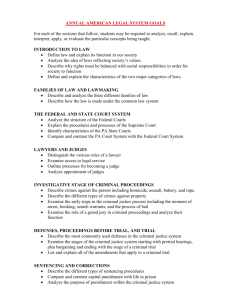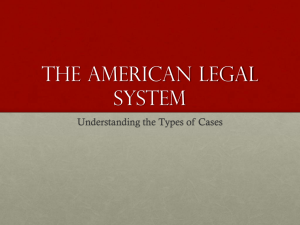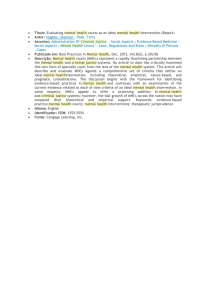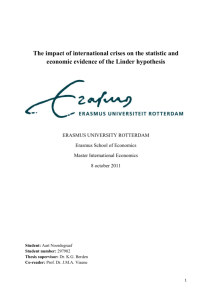foundations 1st assignment - HD
advertisement
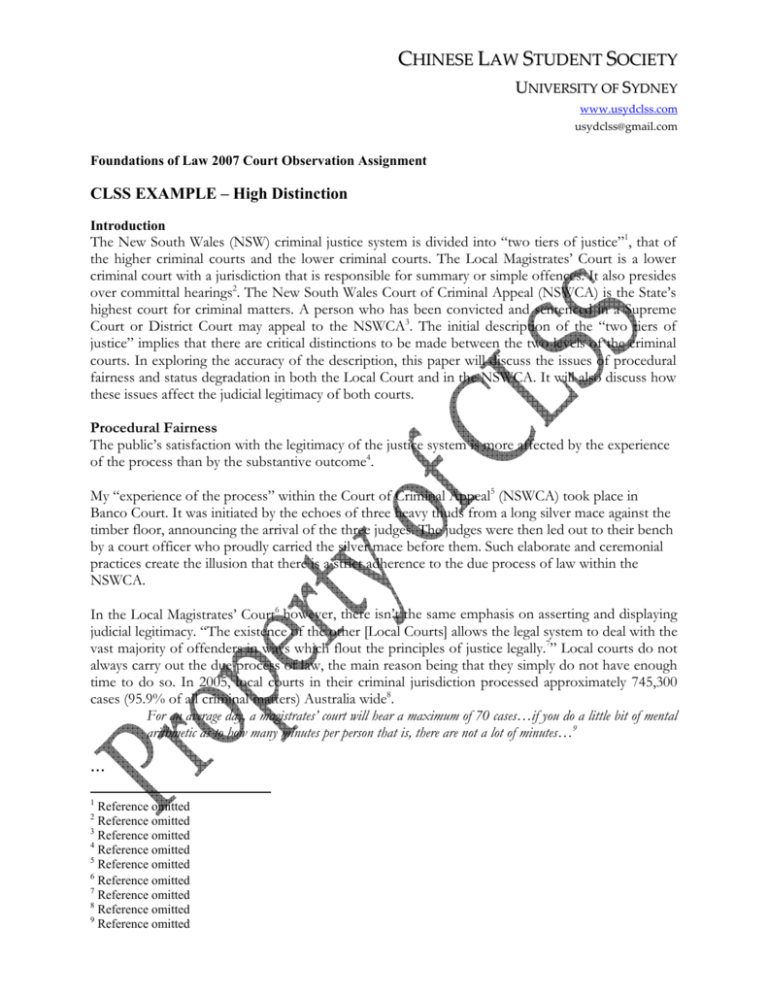
CHINESE LAW STUDENT SOCIETY UNIVERSITY OF SYDNEY www.usydclss.com usydclss@gmail.com Foundations of Law 2007 Court Observation Assignment CLSS EXAMPLE – High Distinction Introduction The New South Wales (NSW) criminal justice system is divided into “two tiers of justice”1, that of the higher criminal courts and the lower criminal courts. The Local Magistrates’ Court is a lower criminal court with a jurisdiction that is responsible for summary or simple offences. It also presides over committal hearings2. The New South Wales Court of Criminal Appeal (NSWCA) is the State’s highest court for criminal matters. A person who has been convicted and sentenced in a Supreme Court or District Court may appeal to the NSWCA3. The initial description of the “two tiers of justice” implies that there are critical distinctions to be made between the two levels of the criminal courts. In exploring the accuracy of the description, this paper will discuss the issues of procedural fairness and status degradation in both the Local Court and in the NSWCA. It will also discuss how these issues affect the judicial legitimacy of both courts. Procedural Fairness The public’s satisfaction with the legitimacy of the justice system is more affected by the experience of the process than by the substantive outcome4. My “experience of the process” within the Court of Criminal Appeal5 (NSWCA) took place in Banco Court. It was initiated by the echoes of three heavy thuds from a long silver mace against the timber floor, announcing the arrival of the three judges. The judges were then led out to their bench by a court officer who proudly carried the silver mace before them. Such elaborate and ceremonial practices create the illusion that there is a strict adherence to the due process of law within the NSWCA. In the Local Magistrates’ Court6 however, there isn’t the same emphasis on asserting and displaying judicial legitimacy. “The existence of the other [Local Courts] allows the legal system to deal with the vast majority of offenders in ways which flout the principles of justice legally.7” Local courts do not always carry out the due process of law, the main reason being that they simply do not have enough time to do so. In 2005, local courts in their criminal jurisdiction processed approximately 745,300 cases (95.9% of all criminal matters) Australia wide8. For an average day, a magistrates’ court will hear a maximum of 70 cases…if you do a little bit of mental arithmetic as to how many minutes per person that is, there are not a lot of minutes…9 … 1 Reference omitted Reference omitted 3 Reference omitted 4 Reference omitted 5 Reference omitted 6 Reference omitted 7 Reference omitted 8 Reference omitted 9 Reference omitted 2



